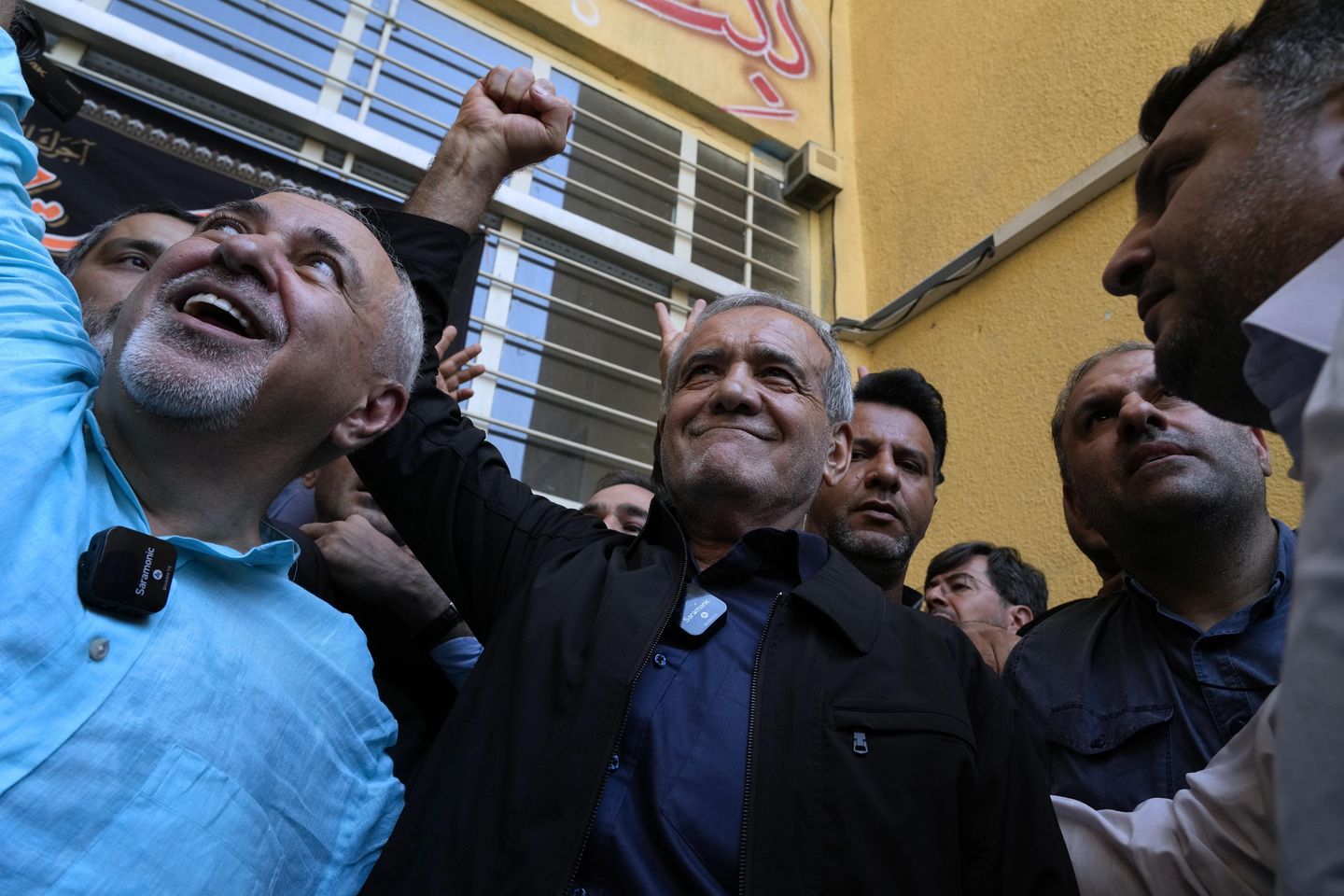Reformist candidate Masoud Pezeshkian emerged victorious in Iran’s recent presidential runoff election, defeating his hard-line opponent Saeed Jalili. Pezeshkian’s victory was attributed to his pledge to pursue a more moderate and conciliatory approach towards the West, as well as his promise to relax enforcement of the country’s mandatory headscarf law. This election outcome comes at a crucial juncture for Iran, which has been grappling with the impact of years of sanctions and widespread protests that have put significant pressure on the Islamic Republic.
The runoff election between Pezeshkian and Jalili was closely watched both domestically and internationally, as it was seen as a pivotal moment in determining the future direction of Iran’s governance. Pezeshkian, a reformist candidate, ran on a platform that emphasized the importance of engagement with Western countries and a commitment to addressing the concerns of the Iranian people. In contrast, Jalili, a hard-liner with close ties to the country’s conservative establishment, took a more confrontational stance towards the West and advocated for a continuation of strict enforcement of Islamic laws.
Pezeshkian’s victory represents a significant shift in Iran’s political landscape, as it signals a desire for change and a departure from the hard-line policies that have dominated the country’s leadership in recent years. His platform of reaching out to the West and easing enforcement of the mandatory headscarf law resonated with many Iranians who are eager for a more open and inclusive society. This election outcome reflects a growing dissatisfaction with the status quo and a desire for a more progressive and forward-thinking government.
One of the key issues that Pezeshkian has promised to address is the country’s mandatory headscarf law, which has been a source of controversy and dissent among many Iranians. The enforcement of this law has been a flashpoint for protests and civil disobedience, with many women choosing to defy the regulations by removing their headscarves in public. Pezeshkian’s pledge to relax enforcement of the headscarf law is a clear signal that he is committed to promoting greater personal freedoms and tolerance in Iranian society.
In addition to his stance on social issues, Pezeshkian has also emphasized the importance of diplomacy and engagement with Western countries. Iran has been under a heavy burden of economic sanctions for many years, which have taken a toll on the country’s economy and led to widespread hardship for its citizens. Pezeshkian’s promise to pursue a more moderate and conciliatory approach towards the West is seen as a step towards easing tensions and improving Iran’s standing in the international community.
The election of Pezeshkian has generated a sense of optimism and hope among many Iranians who are eager for change and reform. His victory has been hailed as a victory for democracy and a rejection of the hard-line policies that have stifled progress and development in Iran. Pezeshkian’s inclusive and progressive vision for the country has struck a chord with a wide range of Iranians, including young people, women, and minorities who have long been marginalized and ignored by the ruling elite.
As Pezeshkian prepares to take office as Iran’s next president, he faces a host of challenges and obstacles that will test his leadership and resolve. The country’s economy is in dire straits, with inflation soaring and unemployment rates at record highs. In addition, Iran’s relations with Western countries remain strained, with ongoing disputes over the nuclear program and regional conflicts in the Middle East.
Despite these challenges, Pezeshkian’s election represents an opportunity for Iran to turn a new page and chart a different course for its future. His commitment to dialogue and diplomacy, as well as his promise to promote greater personal freedoms and tolerance, offer a glimmer of hope for a country that has long been mired in conflict and division. Pezeshkian’s victory is a testament to the resilience and determination of the Iranian people, who have shown that they are willing to stand up for their rights and demand change.
In the coming months and years, Iran will be closely watched as it navigates the complex challenges that lie ahead. Pezeshkian’s success will depend on his ability to deliver on his promises and address the pressing issues facing the country. The international community will be watching closely to see how Iran’s new leadership under Pezeshkian will shape its future and its relations with the rest of the world.
Overall, the election of Masoud Pezeshkian as Iran’s next president represents a turning point for the country and a chance for a new beginning. His victory sends a powerful message of hope and optimism to the Iranian people, who are eager for change and reform. As Pezeshkian prepares to take office, he will have the opportunity to lead Iran towards a brighter future and a more inclusive and tolerant society.









